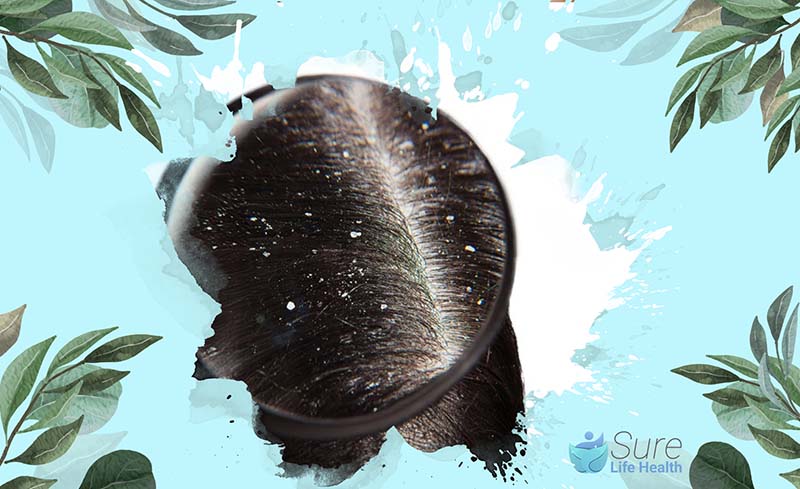When it comes to hair care, the most effective ingredients often come directly from nature, offering both proven effectiveness and a natural charm. One such ingredient is sesame oil, derived from the simple sesame seed.
Celebrated around the world in various traditional health and beauty routines, sesame oil is renowned for its impressive benefits to hair.
This article explores the extraordinary properties of sesame oil, examining how it promotes hair growth, combats dryness, and boosts hair vitality, ultimately highlighting the key sesame oil benefits for hair.
What Is Sesame Oil?
Sesame oil, extracted from the seeds of the Sesamum indicum plant, has a rich history that spans thousands of years across various cultures. Known as one of the oldest oils used by humans, it offers more than just a unique, robust flavor for cooking.
Sesame oil is celebrated for its versatile health benefits and is used in numerous ways around the house and for personal health, making it an essential component in both traditional and contemporary lifestyles.

Is Sesame Oil Good for Your Hair?
Undoubtedly, sesame oil is excellent for hair health. Extracted from sesame seeds, also referred to as gingelly oil, this oil is rich in vital vitamins and minerals necessary for healthy hair. It is loaded with vitamin E, B complex, and minerals like calcium, magnesium, phosphorus, and protein, which strengthen the roots and deeply nourish the hair.
Thanks to its anti-fungal and anti-inflammatory effects, sesame oil ensures a healthy scalp, which is essential for hair growth and for warding off problems such as dandruff and scalp infections. Its moisturizing properties keep the scalp and hair well-hydrated, helping to prevent dryness and reduce damage. Consistent use of sesame oil can repair damaged strands, minimize split ends, and help prevent gray hair early on, making it a superb natural treatment for achieving fuller, healthier hair. Therefore, integrating sesame oil into your daily hair care regimen can lead to notable improvements in your hair’s health and visual appeal.

7 Uses of Sesame Oil for Hair Care
Prevents Premature Graying
Sesame oil is a natural remedy for maintaining your hair’s original color, thanks to its rich content of antioxidants and beneficial substances. It is widely recognized and used globally for its effectiveness in preventing premature graying.
Often, early graying happens due to environmental stressors speeding up the graying process. Luckily, sesame oil is loaded with antioxidants that block harmful free radicals and chemicals, helping to keep gray hair at bay.
Shields Hair From Harmful UV Rays
Sun exposure can seriously harm your scalp and hair. Sesame oil acts as a natural shield against the sun’s UV rays, blocking up to 30 percent of them. It coats the scalp and hair, protecting them from sun damage and environmental pollutants.
Prevents Hair Loss Due to Stress
Sesame oil isn’t just nourishing; it also has calming properties. Massaging the scalp with sesame oil can reduce anxiety and prevent hair loss triggered by stress.
It’s also beneficial for those suffering from migraines and insomnia. For an extra soothing effect, blend sesame oil with other relaxing oils like eucalyptus or ylang-ylang.
Promotes Hair Growth
Sesame oil boosts blood circulation in the scalp, which is crucial for hair growth. It’s rich in omega-3 and omega-6 fatty acids, essential nutrients for maintaining healthy hair.
Studies have shown that lacking these fats can lead to hair loss. Using sesame oil can be an effective way to combat thinning hair or hair loss.

Soothes Dry And Heat-damaged Hair
Sesame oil is an outstanding emollient, effective at softening the skin and smoothing hair strands. The fatty acids that make sesame oil a popular choice in cooking are equally beneficial for topical applications, particularly useful for addressing dry hair and scalp conditions.
The oil is rich in several types of beneficial fatty acids that are often included in the formulation of shampoos, skin creams, and cosmetics. These fatty acids include:
- Palmitic acid
- Linoleic acid
- Linolenic acid
- Oleic acid
- Stearic acid
These components help nourish and restore the natural health of your hair, making sesame oil a valuable addition to your hair care routine.

Treats Lice
Sesame oil’s natural antibacterial properties make it an effective tool for combating scalp infections, including those caused by fungi and bacteria. For treating lice, sesame oil can be mixed with other potent oils like neem and tea tree oil, enhancing its effectiveness against these pests.
Fights Dandruff
Both sesame seeds and sesame oil are known for their antibacterial and antifungal qualities, which can help prevent or tackle common scalp infections. Regular application of sesame oil on your scalp can help reduce dandruff, often a result of fungal or bacterial activity.
Sesame oil also has occlusive properties, meaning it can seal moisture into the scalp when applied after cleansing. This helps maintain scalp hydration, reducing dryness, flaking, and itchiness—common symptoms associated with dandruff.

Who Should Refrain From Using Sesame Oil?
While sesame oil offers numerous health benefits and is a popular choice for many, it is not suitable for everyone. Primarily, individuals with a known allergy to sesame should avoid sesame oil completely. Even small amounts can trigger severe allergic reactions, including hives or a potentially life-threatening condition known as anaphylaxis.
Furthermore, due to its high calorie content, excessive use of sesame oil could contribute to weight gain. Those who are managing their weight or concerned about obesity should use sesame oil sparingly. Additionally, sesame oil can impact blood pressure and blood sugar levels. Therefore, individuals with high blood pressure or diabetes should consult with their healthcare provider before incorporating increased amounts of sesame oil into their diet. This precaution ensures that its use does not interfere with any existing health conditions or medication regimens.
Is It Safe to Leave Sesame Oil Overnight?
Yes, it’s totally fine! Using sesame oil on your hair overnight is a great way to make it healthier. Just pick a hair mask that uses sesame oil, and rub it into your scalp in a gentle, circular way. Make sure you get it all over your scalp to get the most out of it. To keep your pillow clean, wrap your head with a scarf before you go to sleep. When you wake up, just wash your hair with your usual shampoo to get the oil out.
Note: If your skin usually reacts to new products, test a small amount on your skin first or talk to a skin doctor, especially since oils can sometimes cause breakouts.

Disadvantages of Using Sesame Oil for Hair
Using sesame oil on your hair isn’t without its drawbacks. Like any oil, it can block pores, which might irritate your scalp and skin. Blocked pores can also lead to hair loss. To avoid these issues, don’t leave sesame oil on your scalp and hair for too long.
It’s crucial to wash all the sesame oil out of your hair after using it. Shampoo your hair and rinse with warm water. When you’re in the shower, massage your scalp well to make sure you remove all the oil.
If you find sesame oil too thick or cold, you can warm it up slightly before applying, which can make it feel nicer. But be careful not to overheat it. Always test the oil by putting a small drop on the inside of your wrist to make sure it’s not too hot. Applying hot oil can burn your scalp and damage your hair.
Using Sesame Oil for Promoting Hair Growth
Sesame oil is a hidden gem in the world of hair care. While coconut and castor oils are well-known, sesame oil has quietly provided impressive benefits. Here are some top ways to incorporate sesame oil into your hair care routine.
Scalp Cleaner: Sesame oil, often paired with neem oil, makes an excellent scalp cleaner. This combination not only leaves your hair silky smooth but also soothes an itchy scalp.
How-To:
- Mix equal parts sesame and neem oil (50/50).
- Gently massage the mixture into your scalp.
- Leave it on for 30 minutes.
- Rinse with a gentle hair cleanser.
Deep Conditioner: Enhance your hair’s moisture with a mix of sesame and sweet almond oil. Sweet almond oil is loaded with fatty acids, perfect for deep conditioning.
How-To:
- Add both oils to your favorite deep conditioner.
- Massage into your scalp.
- Leave for 30 minutes.
- Rinse with a gentle hair cleanser.
Moisturizer: Revitalize and moisturize your hair using a blend of coconut and sesame oil. This duo combats frizz and repairs damaged hair, thanks to the rich fatty acids in coconut oil.
How-To:
- Mix equal parts of coconut and sesame oil in an application bottle.
- Apply the mixture to your scalp and distribute it through your hair.
- Wrap your hair in a hot towel for 30 minutes.
Rinse with a mild shampoo.
Can Sesame Oil Be Mixed With Coconut Oil?
Yes, sesame oil can be mixed with coconut oil. Each oil offers unique benefits and experiences. Coconut oil is known for its cooling properties, making it a popular choice during the summer or for people who tend to feel hot, such as those with a pitta dosha constitution.
On the other hand, sesame oil provides a warming effect and is often favored in colder seasons. Combining these oils is perfectly fine, but it’s important to consider your body’s needs and the environmental temperature when doing so. Mixing them allows you to customize their effects to suit your specific requirements.

Conclusion
Sesame oil is a natural treasure for hair care, celebrated widely for its numerous benefits. This remarkable oil promotes hair growth, combats dryness, improves texture, and protects hair from environmental damage. Its enduring popularity is a testament to its effectiveness.
By incorporating sesame oil into your regular hair care regimen, you initiate a transformative journey towards healthier, more lustrous hair. Embracing the sesame oil benefits for hair allows you to nurture your hair’s natural beauty and strength, ensuring it stays resilient and attractive.
Don’t miss the opportunity to explore further insightful content from SurelifeHealth.
Professor Gaye Cunnane, PhD, MB, FRCPI
As the Director of Health and Wellbeing at RCPI, Professor Gaye Cunnane is at the helm of initiatives aimed at enhancing the health and well-being of RCPI Trainers and Trainees. Her role extends beyond administration; she is also a respected clinical professor of rheumatology and a consultant rheumatologist at Trinity College Dublin (TCD) and St James’s Hospital. Prof. Cunnane’s medical journey began at TCD, where she graduated from medical school, and her path has been marked by both clinical and academic excellence.
After completing her basic clinical training in medicine, she embarked on PhD studies at University College Dublin and St Vincent’s University Hospital. Her research during this period was focused on prognostic markers in early inflammatory arthritis, a project that saw her collaborating with esteemed universities across Europe, including in Switzerland, The Netherlands, the UK, and Sweden.
Prof. Cunnane’s career took her to the University of California, San Francisco, where she spent three years delving into research on new treatments for lupus. Her academic prowess led her to the University of Leeds in 2001 as a senior lecturer, before returning to Ireland in 2003 to assume her current roles. She has also served as the National Specialty Director for Rheumatology training in Ireland, Programme Director for Basic Specialist Training with RCPI, and as a past President of the Irish Society for Rheumatology.
PUBLISHED ARTICLES
“Rheumatic disease differentiation using immunoglobulin G sugar printing by high-density electrophoresis”: Published in The Journal of Rheumatology, this study reflects her in-depth investigation into rheumatic diseases.
“Benefits of exercise in patients with rheumatoid arthritis: a randomized controlled trial”: This research work, highlighting the positive impact of exercise on rheumatoid arthritis, underscores Prof. Cunnane’s dedication to practical, patient-centered research.
Additionally, Prof. Cunnane has made notable contributions to the Annals of the Rheumatic Diseases, discussing early referral, diagnosis, and treatment of rheumatoid arthritis. She has also been involved in a study on the NCBI platform investigating exercise benefits in rheumatoid arthritis patients.
Professor Gaye Cunnane’s career is a testament to her commitment to improving patient outcomes in rheumatology through rigorous research, clinical excellence, and dedicated teaching. Her work continues to influence the field of rheumatology, both in Ireland and internationally.

